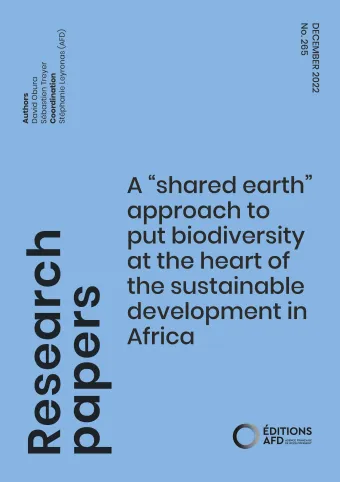Share the page
A “shared earth” approach to put biodiversity at the heart of the sustainable development in Africa
Published on

Biodiversity is a classic example of a global commons. As we enter the coming decades of a rapidly changing climate, declining biodiversity, growing human populations and economic growth, sub-Saharan Africa countries are facing an existential challenge to their security and welfare. We blend commons approaches with a new ‘shared earth’ approach to local planning, focusing on the health and benefits of nature where people live and earn their livelihoods. The approach combines conservation with livelihoods, local cultures and local institutions to generate local solutions that meet peoples needs at the same time securing biodiversity and its benefits into the future. Done right, this approach can facilitate equitable participation of local actors in larger scale and transboundary supply chains, through shared principles of equity of access to and use of nature. This approach can help African and partner countries balance their obligations globally under the Sustainable Development Goals (to 2030) and the new global biodiversity framework (to 2050), while meeting local needs for a good quality of life.
Useful Information
-
Authors
-
David Obura , Sébastien TREYER
-
Coordinators
-
Edition
-
265
-
Number of pages
-
33
-
ISSN
-
2492 - 2846
-
Collection
-
Research Papers
-
Other languages
